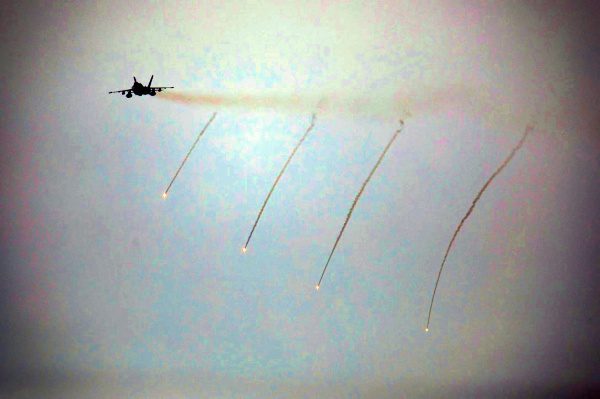Overview of discovery in the military
UCMJ art. 46 (2008) is the root source for much of the military’s discovery and production rules: “The trial counsel, the defense counsel, and the court-martial shall have equal opportunity to obtain witnesses and other evidence.” For discovery, this statute is embodied in RCM 701(e), Access to Witnesses and Evidence: “Each party shall have adequate opportunity to prepare its case and equal opportunity to interview witnesses and inspect evidence. No party may unreasonably impede the access of another party to a witness or evidence.”
The government cannot require that a government representative be present during defense interviews of government witnesses, although in certain circumstances a third party observer may be permissible. United States v. Irwin , 30 M.J. 87 (C.M.A. 1990). If a third party observer is required, that requirement would need to apply to both defense and government interviews. Id . at 93. See also United States v. Killebrew , 9 M.J. 154 (C.M.A. 1980).
- Discovery and Expert Assistance under the UCMJ
- Appointment and Production of Expert Assistance
- Appointment and Production of Expert Witnesses
- Discovery and trial advocacy
- Defense Discovery Responsibilities and Requests
- Disclosures or notices made upon government request (not based on reciprocity)
- Mandatory disclosure or notice requirements for defense counsel
- Disclosures made upon government requests (based on reciprocity)
- Government requests for discovery
- Mandatory disclosure or notice requirements for trial counsel
- Introduction to discovery in the military
- Duty to preserve evidence
- Enforcement
- Regulation of production of witness and evidence under the UCMJ
- Regulation of Discovery
- Protective and modifying orders
- Remedies for Nondisclosure
If the government analyzes the evidence, then the defense can analyze it too. United States v. Walker , 66 M.J. 721 (N-M. Ct. Crim. App. 2008) (in a capital trial, the military judge erred when he refused to allow the defense experts to conduct independent testing of physical evidence admitted a trial). For production, this statute is embodied in RCM 703(a): “The prosecution and defense and the court-martial shall have equal opportunity to obtain witnesses and evidence, including the benefit of compulsory process.”
Ethical considerations. AR 27-26, para. 3.4
- It is unethical to unlawfully obstruct another party’s access to evidence, to make a frivolous discovery request, or fail to make a reasonably diligent effort to comply with a proper discovery request from an opposing party. Rule 3.4(a) and (d).
- “Subject to evidentiary privileges, the right of an opposing party, including the Government, to obtain evidence through discovery or subpoena is an important procedural right.” (Comment to rule).
- The ABA Standards for Criminal Justice, which apply to Army lawyers to the extent that they do not conflict with AR 27-26, contains additional ethical considerations. For example, the Standards contain guidance on how to deal with a witness that asks a party whether or not she should communicate with the other party (see Standard 3-3.1 and accompanying commentary) and whether a trial counsel should read a witness her rights for the purpose of influencing whether that witness should testify (Standard 3-3.2).
Continuing Duty to Disclose
If, before or during the court-martial, a party discovers additional evidence or material previously requested or required to be produced, which is subject to discovery or inspection under this rule, that party shall promptly notify the other party or the military judge of the existence of the additional evidence or material. RCM 701(d). See United States v. Eshalomi , 23 M.J. 12 (C.M.A. 1986); United States v. Jackson , 59 M.J. 330 (C.A.A.F. 2004).
Information not subject to disclosure.
RCM 701(f). Disclosure is not required if the information is protected under the Military Rules of Evidence or if the information is attorney work product (notes, memoranda, or similar working papers prepared by counsel or counsel’s assistants or representatives). United States v. Vanderwier , 25 M.J. 263, 269 (C.M.A. 1987) “Even though liberal, discovery in the military does not ‘justify unwarranted inquiries into the files and the mental impressions of an attorney.’” United States v. King , 32 M.J. 709 (A.C.M.R. 1991), rev’d on other grounds , 35 M.J. 337 (C.M.A. 1992). A defense expert is subject to a pretrial interview by TC, but a defense “representative” under MRE 502 is not. It was improper for TC to communicate with defense representative concerning interview with appellant. United States v. Vanderbilt , 58 M.J. 725 (N-M. Ct. Crim. App. 2003) Holding that a civilian witness’ agreement to testify pursuant to a pretrial agreement with the U.S. Attorney’s Office does not waive that witness’ attorney-client privilege regarding statement made to his attorney during the course of pretrial negotiations.

